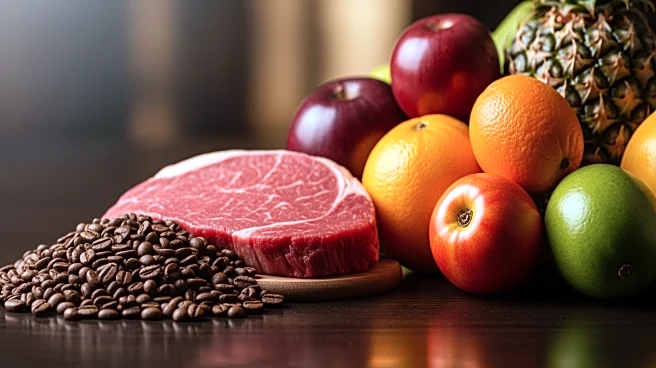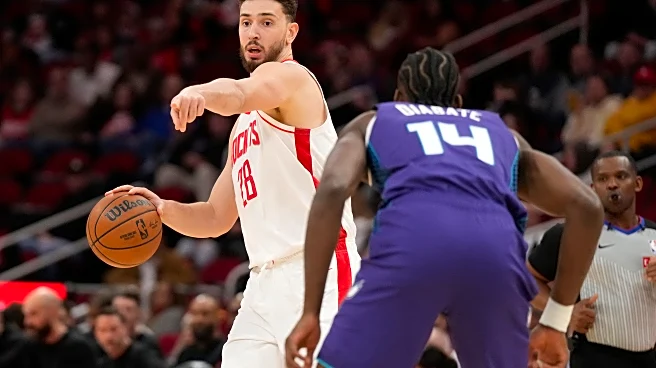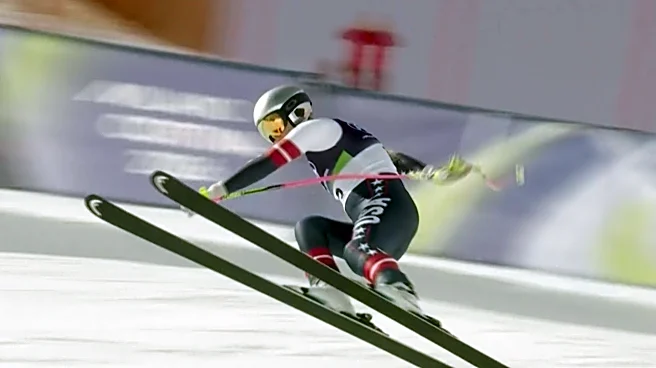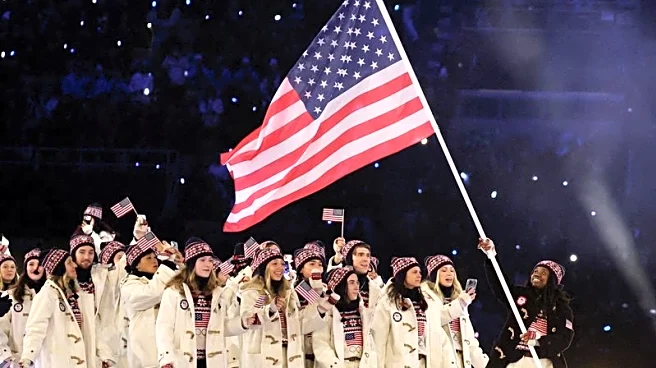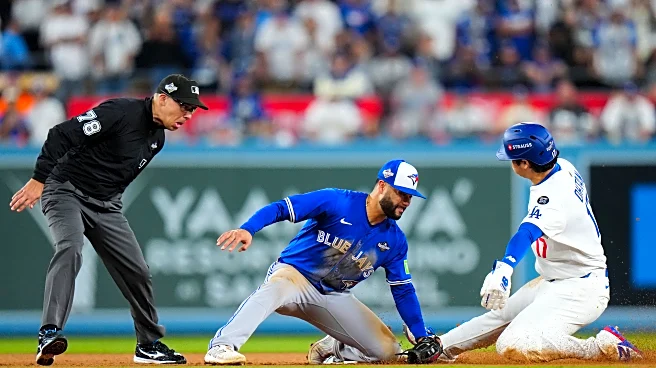What's Happening?
Brazilian Vice President Geraldo Alckmin announced that despite President Trump's recent decision to remove some import taxes, Brazilian exports such as coffee, beef, and tropical fruits will continue to face a 40% tariff when entering the U.S. This decision follows
Trump's earlier move to impose additional tariffs in July, citing political reasons related to the trial of former Brazilian President Jair Bolsonaro. While some products like orange juice will now have zero tariffs, the 40% tariff remains on key Brazilian exports. Alckmin expressed that while Trump's latest decision is a positive step, there is still a significant distortion that needs addressing. The tariffs have impacted U.S.-Brazil relations, although recent diplomatic engagements between President Lula and President Trump suggest potential improvements.
Why It's Important?
The continued high tariffs on Brazilian goods have significant implications for both countries' economies. For Brazil, these tariffs affect major export sectors, potentially reducing competitiveness and impacting economic growth. For the U.S., the tariffs contribute to higher prices for imported goods, particularly beef, which has been a concern amid record-high prices. The political motivations behind the tariffs highlight the complex interplay between international trade and diplomatic relations. The recent dialogue between President Lula and President Trump indicates a potential shift towards resolving trade tensions, which could benefit both economies by fostering better trade agreements and reducing consumer costs.
What's Next?
Future negotiations between the U.S. and Brazil could lead to adjustments in trade policies, potentially reducing tariffs and improving bilateral relations. The Brazilian government may continue to advocate for fairer trade terms, while U.S. policymakers might reassess the impact of tariffs on domestic prices and international relations. The ongoing discussions between U.S. Secretary of State Marco Rubio and Brazil's Foreign Minister Mauro Vieira could pave the way for a new trade deal, addressing the current distortions and fostering economic cooperation.
